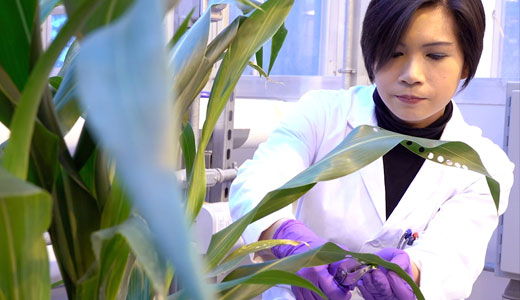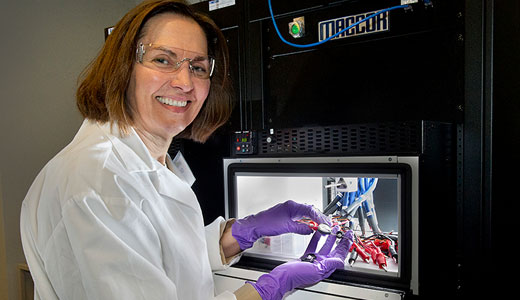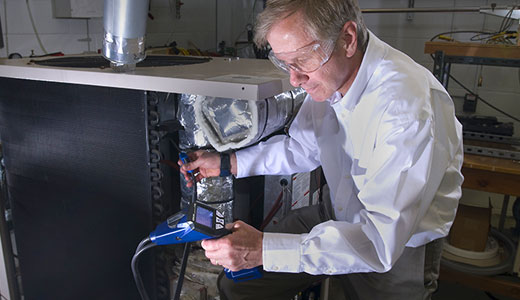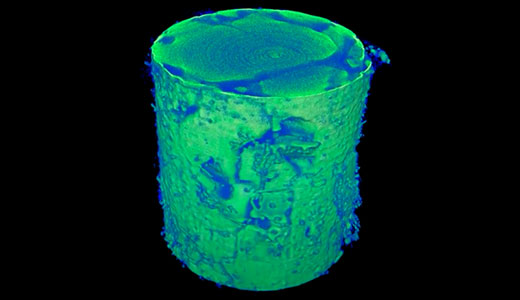Developing technologies for a clean-energy future
Brookhaven aims to lead the Nation toward a net-zero carbon economy by leveraging the Lab’s world-leading materials science and chemistry research facilities to develop clean energy solutions. The Lab’s complementary climate research investigates the atmosphere at unprecedented scales, gathering data that will improve climate models and advance scientists’ understanding of complex environmental systems.
Environmental scientists at Brookhaven Lab are investigating factors that affect Earth’s climate by probing the fundamental building blocks of the climate system. These include aerosols and the plant physiological processes that sustain ecosystems from the Arctic to the tropics. Our data will improve the models used to predict long-term global climate change and the daily atmospheric conditions that impact renewable energy efficiency and demand.
Brookhaven scientists are exploring a range of clean-energy strategies with the aim of moving toward a net-zero carbon future. Examples include rewiring plants’ biochemical pathways to produce biobased fuels; developing catalysts that mimic plants’ ability to capture sunlight and transform carbon dioxide and water into fuel; and developing catalysts that transform carbon dioxide, waste methane, and other raw materials into useful products.
Hydrogen holds promise as an important carbon-free energy carrier of the future, particularly for hard-to-decarbonize industrial and transportation applications. But to realize this vision we need new technologies to produce, store, transport, and utilize hydrogen at scale. Brookhaven scientists are innovating processes, materials, and demonstration capabilities to support the acceleration of hydrogen production and utilization. This work draws on our foundational knowledge and expertise in catalysis, supported by a diverse group of regional and national partners.
Developing new types of energy storage could pave the way for integrating wind and solar power into the nation’s energy grid and transform transportation to make use of electricity generated by these renewable sources. Brookhaven is advancing this vision with studies of existing batteries, by developing new materials for future batteries, and by studying the integration of renewable sources into real-world, grid-scale energy distribution systems.
From improving the efficiency of home heating systems to studying the dispersal of pollutants in urban areas, Brookhaven scientists are conducting research that has the potential to save money, keep carbon out of the atmosphere, and improve human health.
Recognizing the important role nuclear energy plays in providing reliable, carbon-free electricity, Brookhaven Lab scientists are committed to research that will continue to advance the field.










